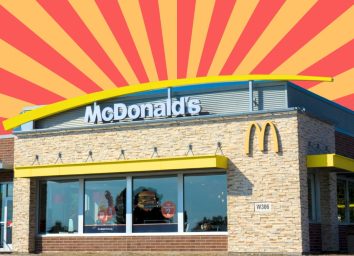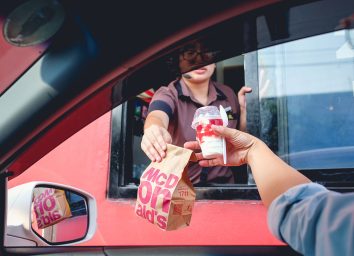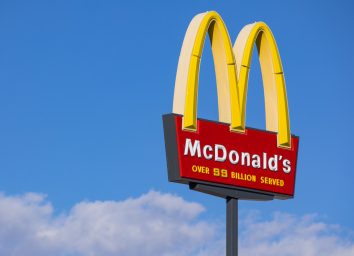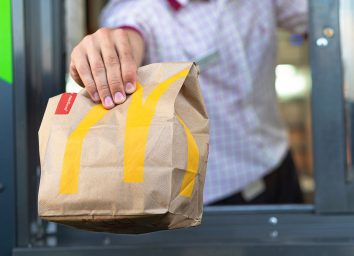15 Surprising Facts About McDonald's Fries You Never Knew
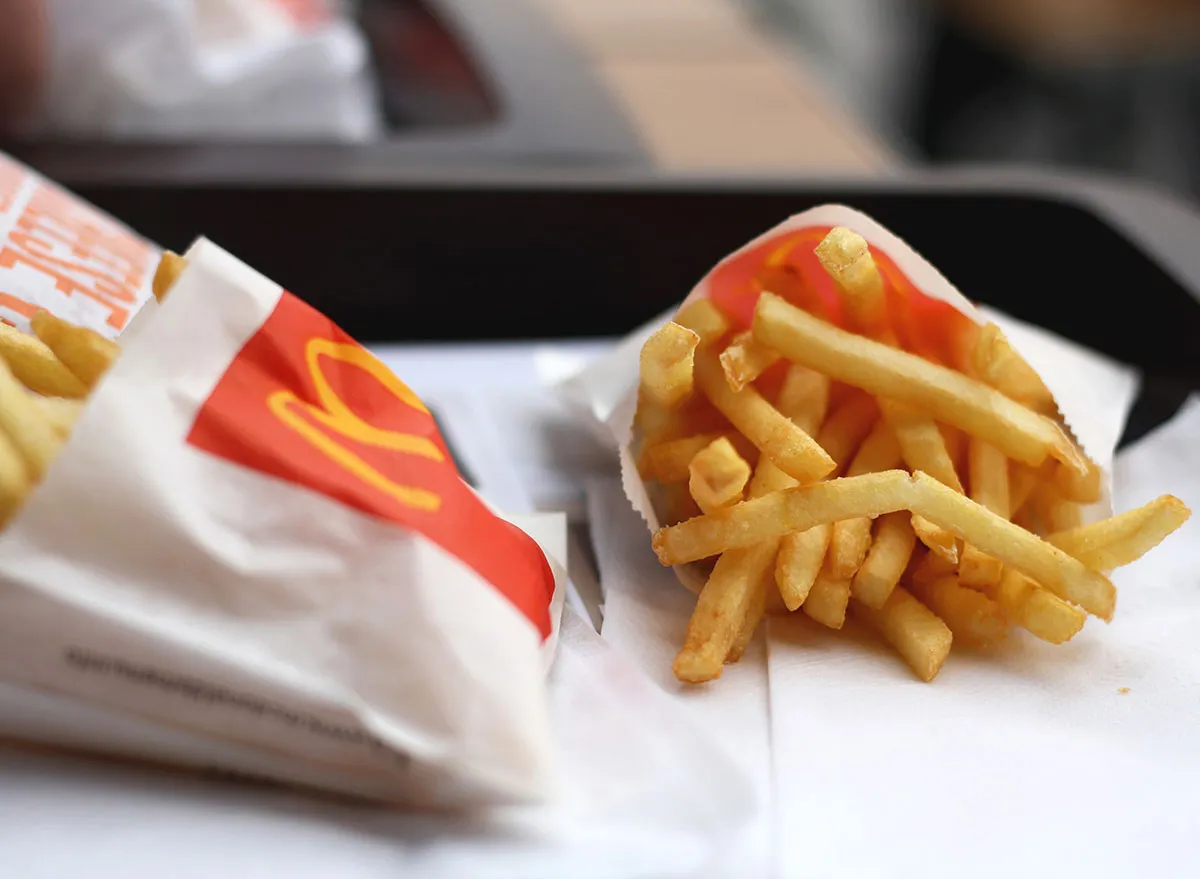
Is it really a trip to McDonald's without an order of the fast-food giant's legendary fries? The combination of the crunchy exterior and soft center, the pure starchy goodness, the somehow always perfect amount of salt—it's no wonder they're so popular. Even though they're not the healthiest option, fries have solidified their place as the official side dish for burgers. And McDonald's is a leading purveyor of burgers—Big Mac, anyone?—so it's no surprise that their fries are renowned, too.
But even if you're known to indulge in McDonald's fries from time to time, you might not know much about what goes into them, or how they've changed over the years. That's why we rounded up some of the most interesting facts about these crispers. And after you read about this salty treasure, make sure to check out the 15 Classic American Desserts That Deserve a Comeback.
They're the most popular McDonald's item.
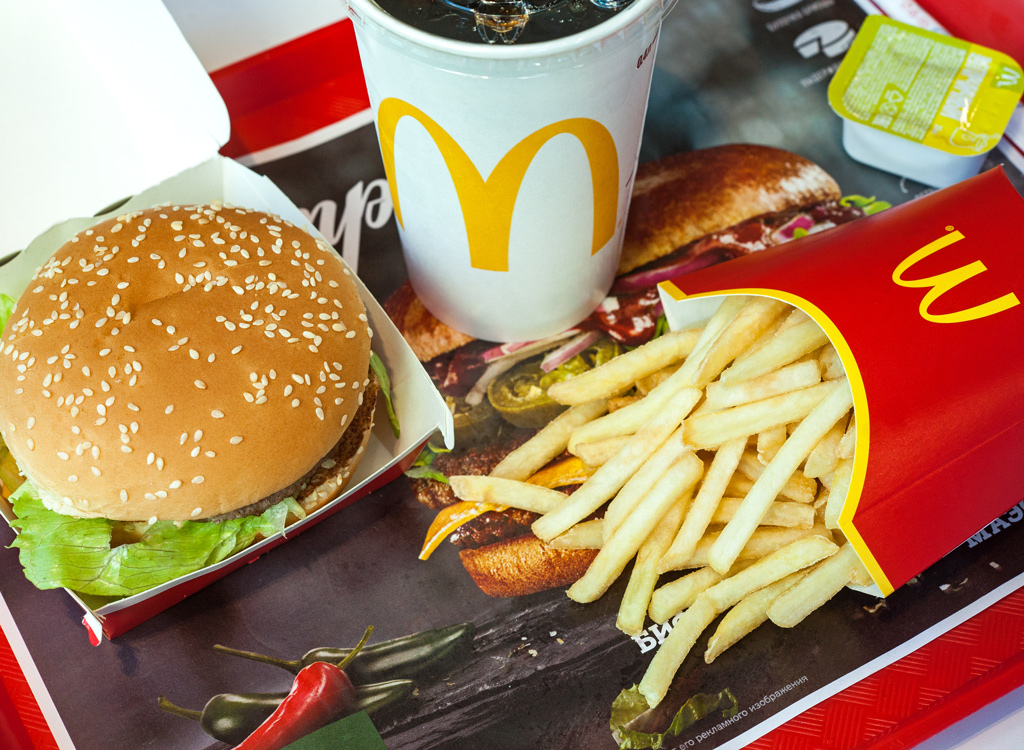
The fries are the most popular Mcdonald's menu item at the fast-food restaurant, beating out classics like the Big Mac. HowStuffWorks reported on this finding, and frankly, it's not hard to see why they come out on top. They're perfect as a side or a snack, and they're delicious with just about any sauce.
You can get fresh ones just by asking for them.
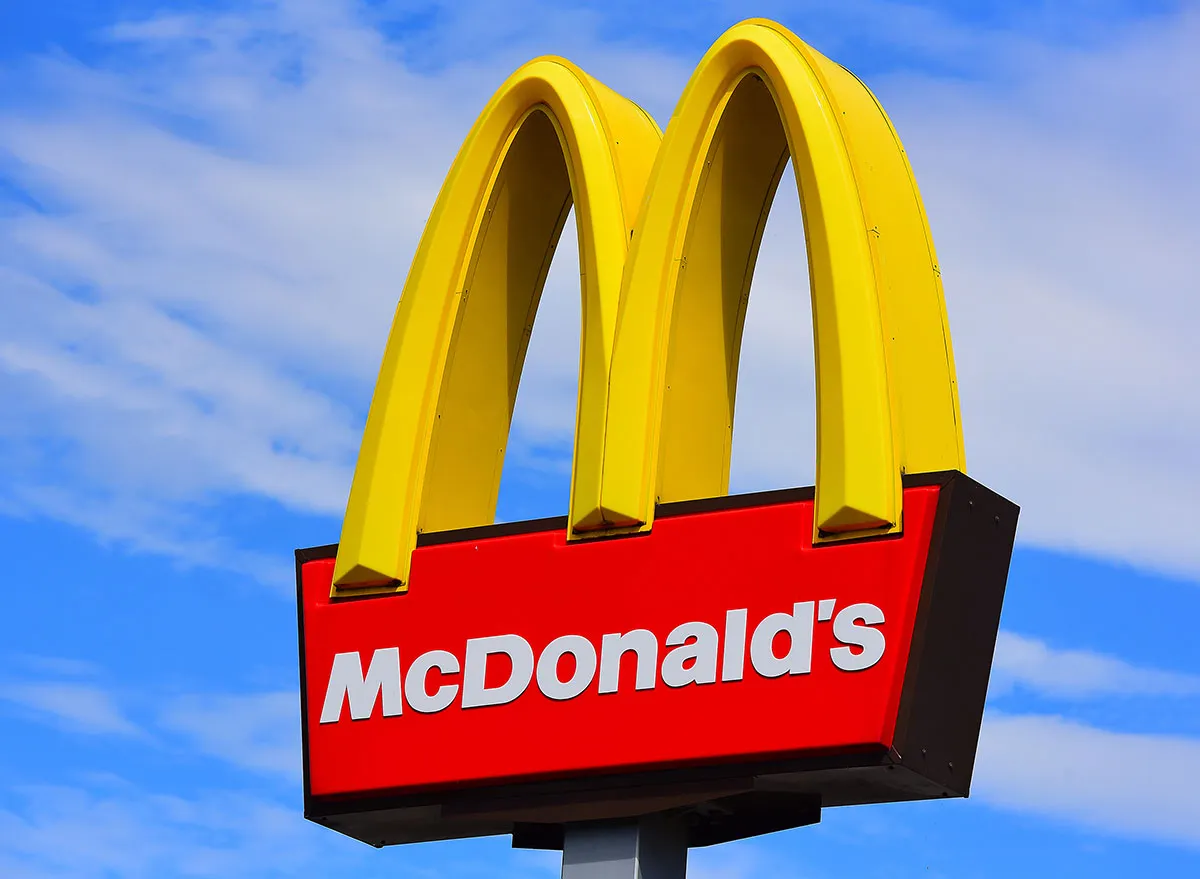
You might have heard from various stories or seen this pop up on the occasional Reddit thread that you can get fresh fries at McDonald's by asking for them without salt. But that also means the employees have to create a new batch—and if the store is busy, that can be pretty inconvenient. As Business Insider pointed out, one McDonald's employee suggested to just ask for fresh fries, rather than salt-free fries. You'll still get the hot-out-the-fryer delights, but it's easier on the staff who is already working hard to cook up the many orders coming in. (If you really are trying to cut back on sodium, though, you can still ask for the salt-free version.)
They're not vegan-friendly.
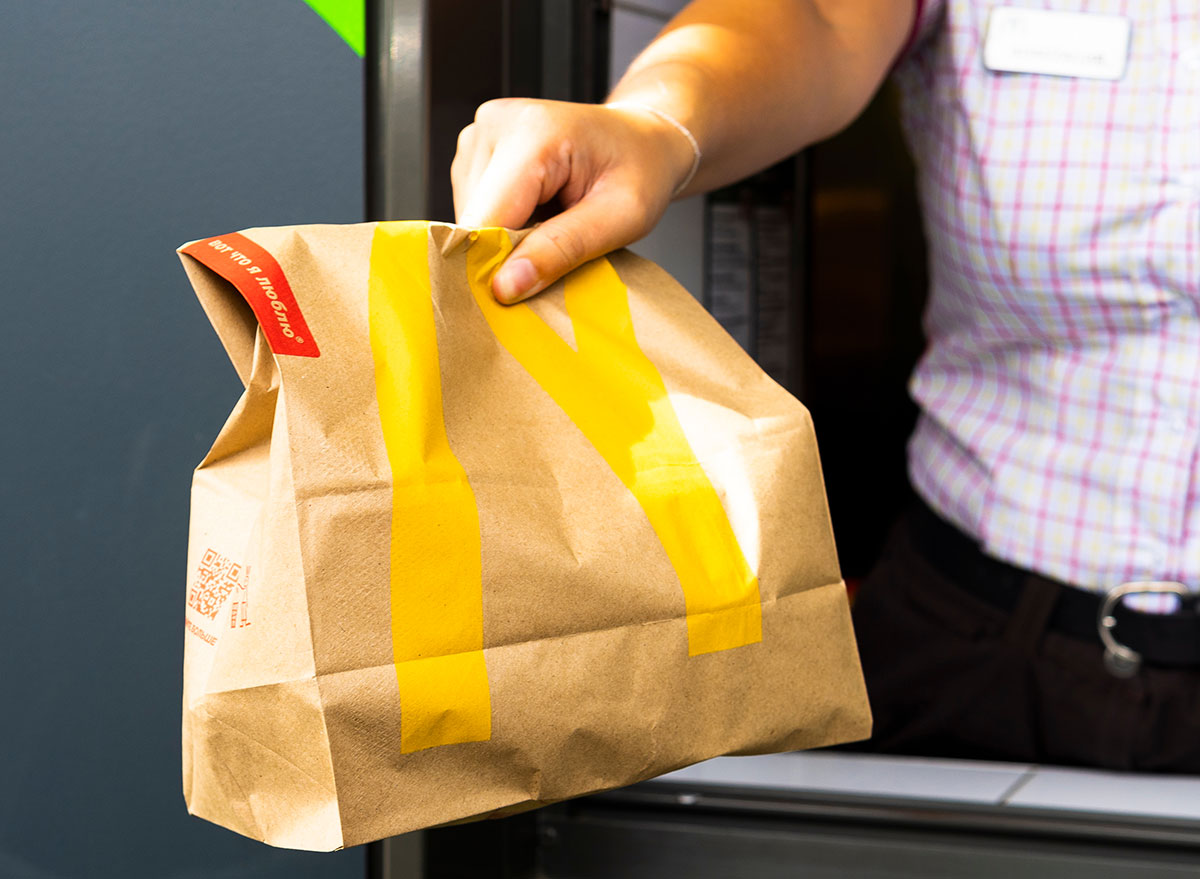
Even though potatoes are a vegetable, people who don't eat animal products will still want to avoid McDonald's fries. "Natural beef flavor" is listed among the ingredients that are used on the spuds. According to McDonald's, "natural beef flavor contains hydrolyzed wheat and hydrolyzed milk as starting ingredients." So yeah, not a vegan-friendly food choice at all.
They are cut, not mashed and formed into fry-like shapes.
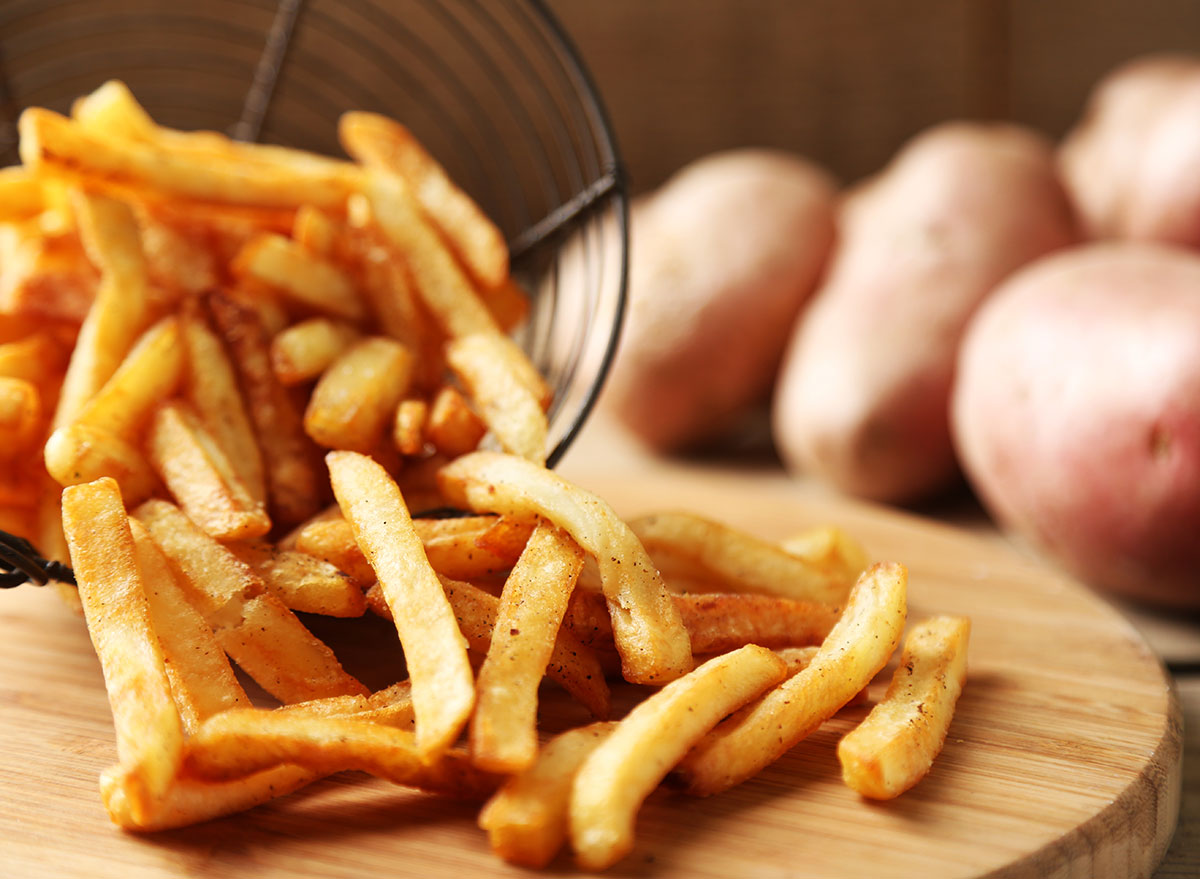
In a video from McDonald's Canada, employees at the company explained that once the potatoes are washed and peeled, they're machine-cut into their fry shapes. Yes, they are frozen before they arrive at the restaurant, but those shapes are really how the potatoes were cut.
There are chemicals added to keep all of the fries a uniform color.

In that same revealing video from McDonald's Canada, Mario Dupuis, a production manager at McDonald's supplier McCain Fries, explained that the fries are put through a blancher to remove the sugar from the potatoes. This also "prevents some variation" in fry color, Dupuis said. They're also treated with a "dextrose solution" and other ingredients to prevent the fries from "graying," he explained.
They're fried for about a minute and then frozen before being shipped to the restaurants.
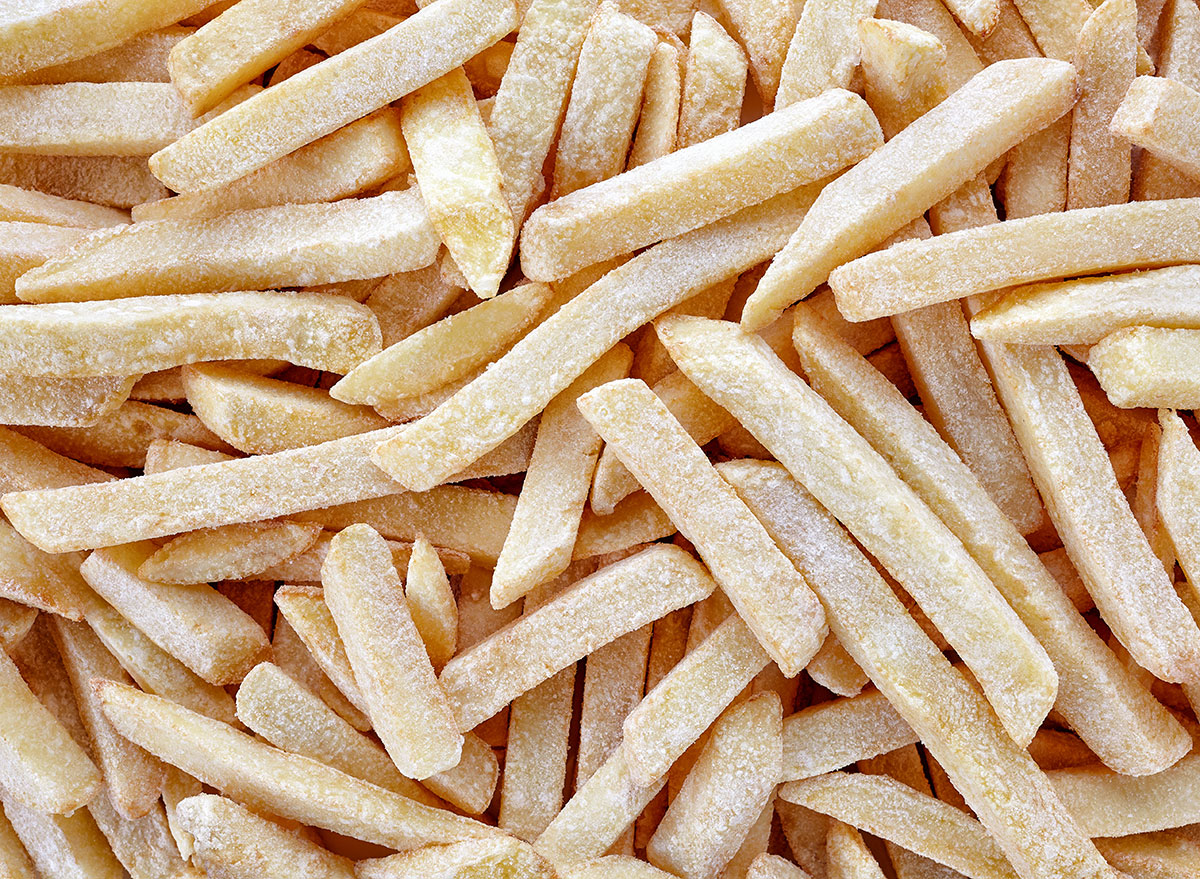
Dupuis really spilled all, also explaining that the potato slices are fried for 45 to 60 seconds before being frozen. They then undergo another trip to the fryer once they arrive at the many McDonald's locations.
McDonald's changed the recipe in 1992.
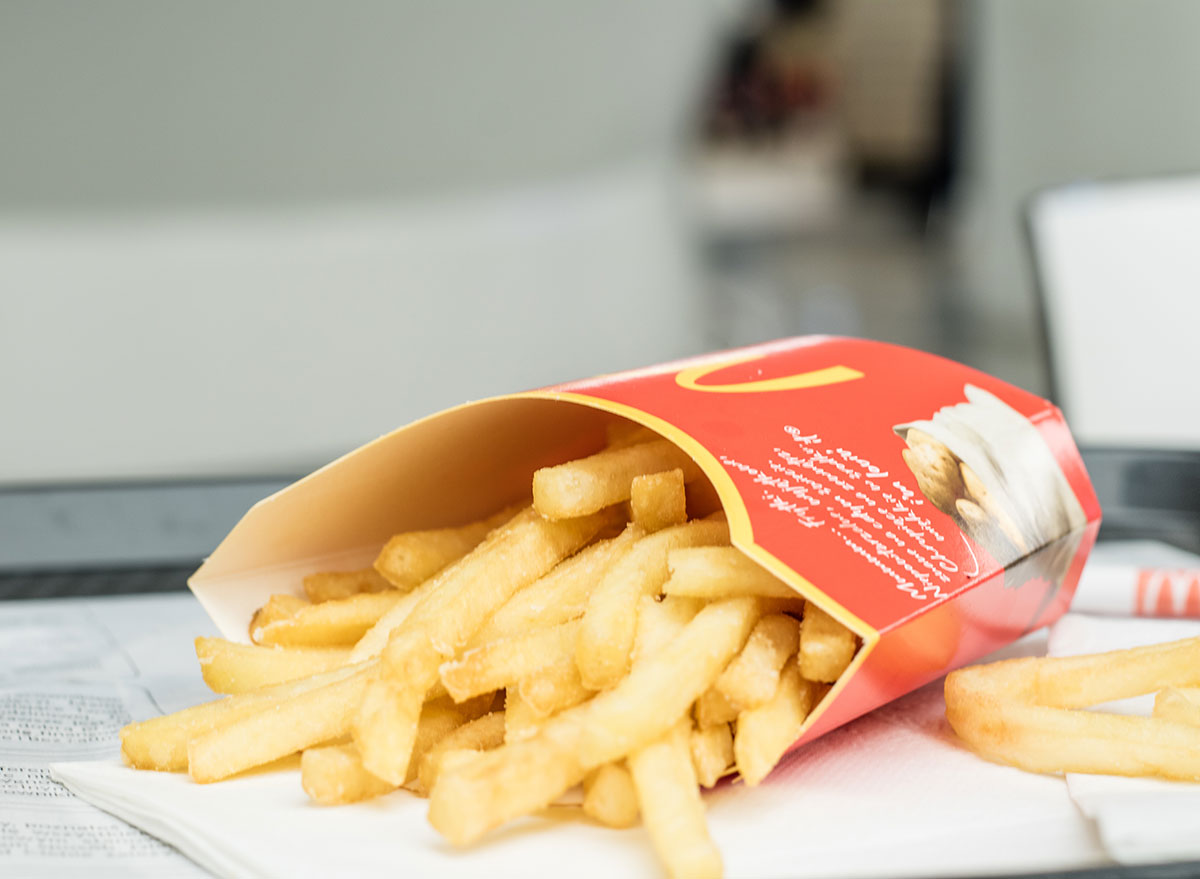
If you're not crazy about the "hydrolyzed wheat and hydrolyzed milk" that go into making McDonald's fries' "natural beef flavor," you'll be even less appetized by this news. Before 1992, Micky D's made its fries with beef tallow, Malcolm Gladwell explained on the Revisionist History podcast. But thanks to pressure to eliminate the saturated fat that came from the beef tallow, McDonald's started using vegetable oil instead in 1992.
They're one of the original menu items.
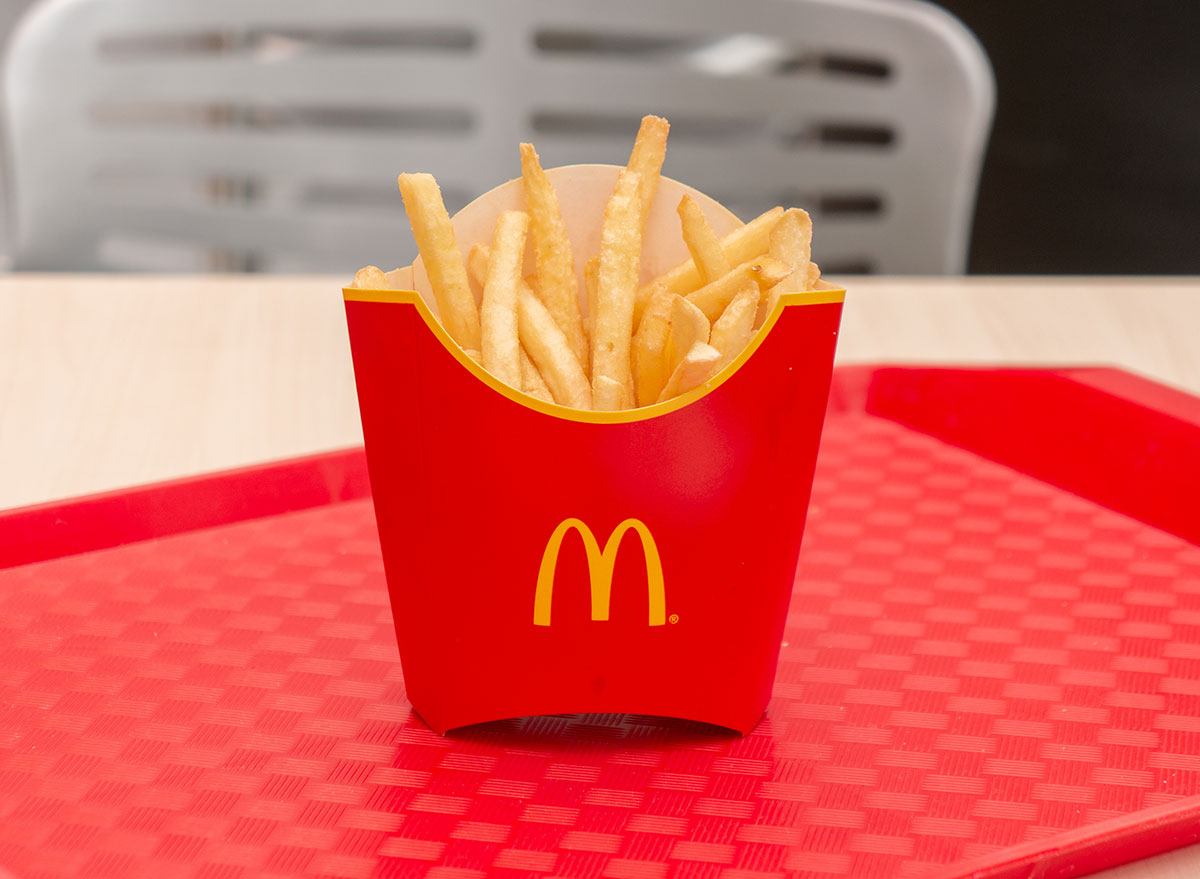
In 2016, The Daily Meal shared a photo of an original 1950s McDonald's menu. There were no Chicken McNuggets in sight—just fries, burgers, shakes, and a variety of soft drinks. McDonald's was originally founded as a barbecue restaurant in 1940, the outlet explains, but according to History.com, fries were on the original barbecue menu, too. So it's clearly always been a staple.
They have more ingredients than you'd think.
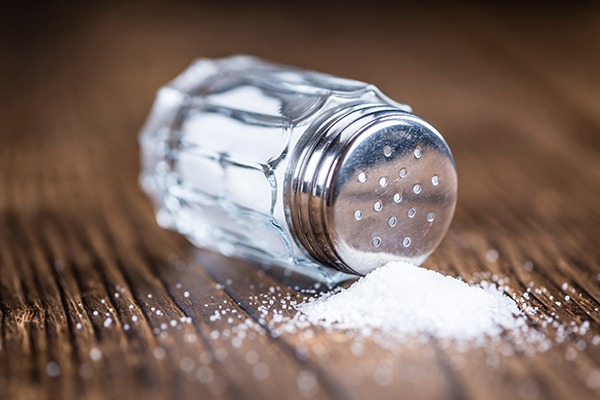
We've already mentioned that some chemicals are added to the potatoes for preservation and color. But if you're used to making fries at home or going to restaurants where this food option isn't frozen before it makes its way to your plate, you might think the only ingredients are potatoes, oil, and salt. McDonald's, though, also includes ingredients like dextrose and sodium acid pyrophosphate when it comes to cooking up their potatoes.
Six fries is a proper serving size, according to one Harvard professor.
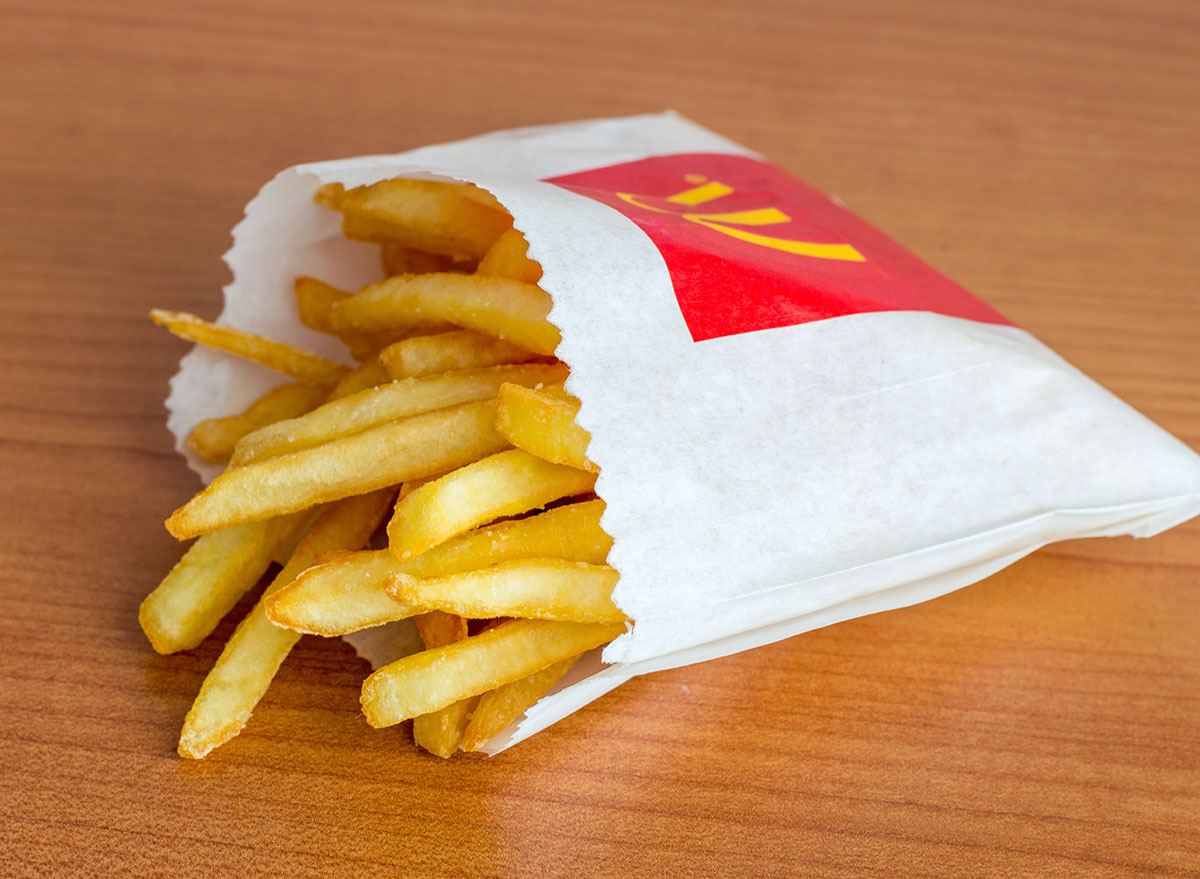
In a New York Times report about French fries, Eric Rimm, a professor of epidemiology and nutrition at Harvard's T. H. Chan School of Public Health, suggested eating a smaller amount of fries, paired with a leafy green vegetable. "I think it would be nice if your meal came with a side salad and six French fries," Rimm told the Times. But you're not alone if you think that eating just six fries is a little ridiculous. At McDonald's though, you can get anywhere from around 50 to nearly 90 fries, depending on if you order a size small or large.
Multiple varieties of potatoes go into one batch.
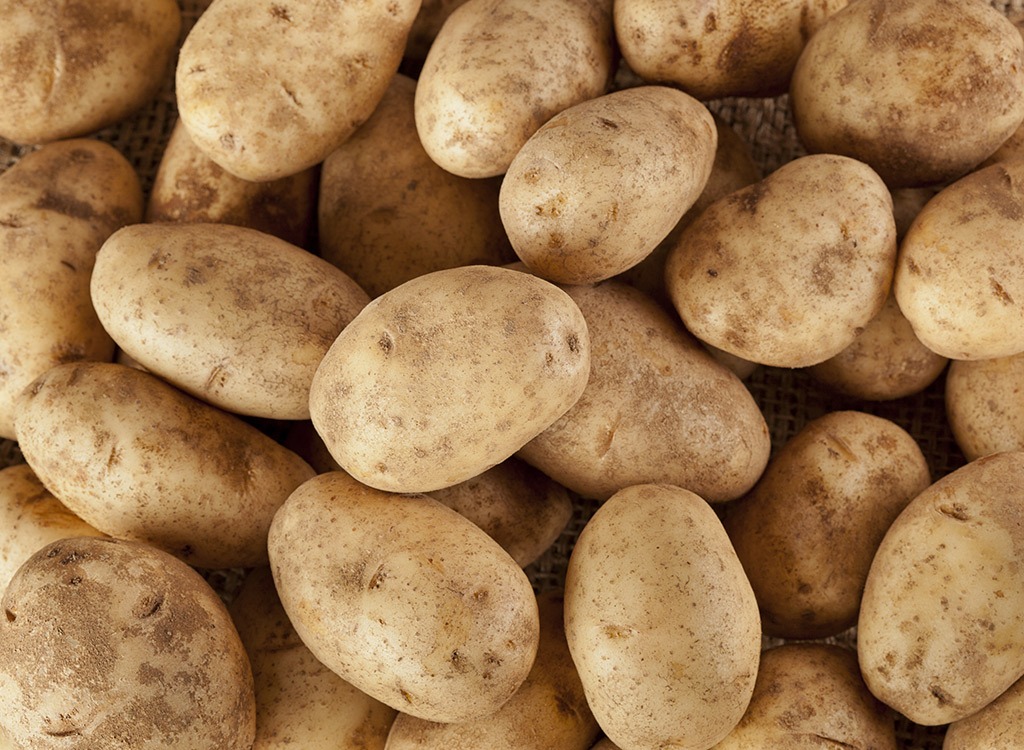
You're probably familiar with Russet potatoes, which make for great baked potatoes and fries. But McDonald's notes on its website that it uses four common potato types—Russet Burbank, Russet Ranger, Umatilla Russet, and Shepody potatoes—to create its fries.
McDonald's most likely won't ever sell curly fries, much to diners' dismay.
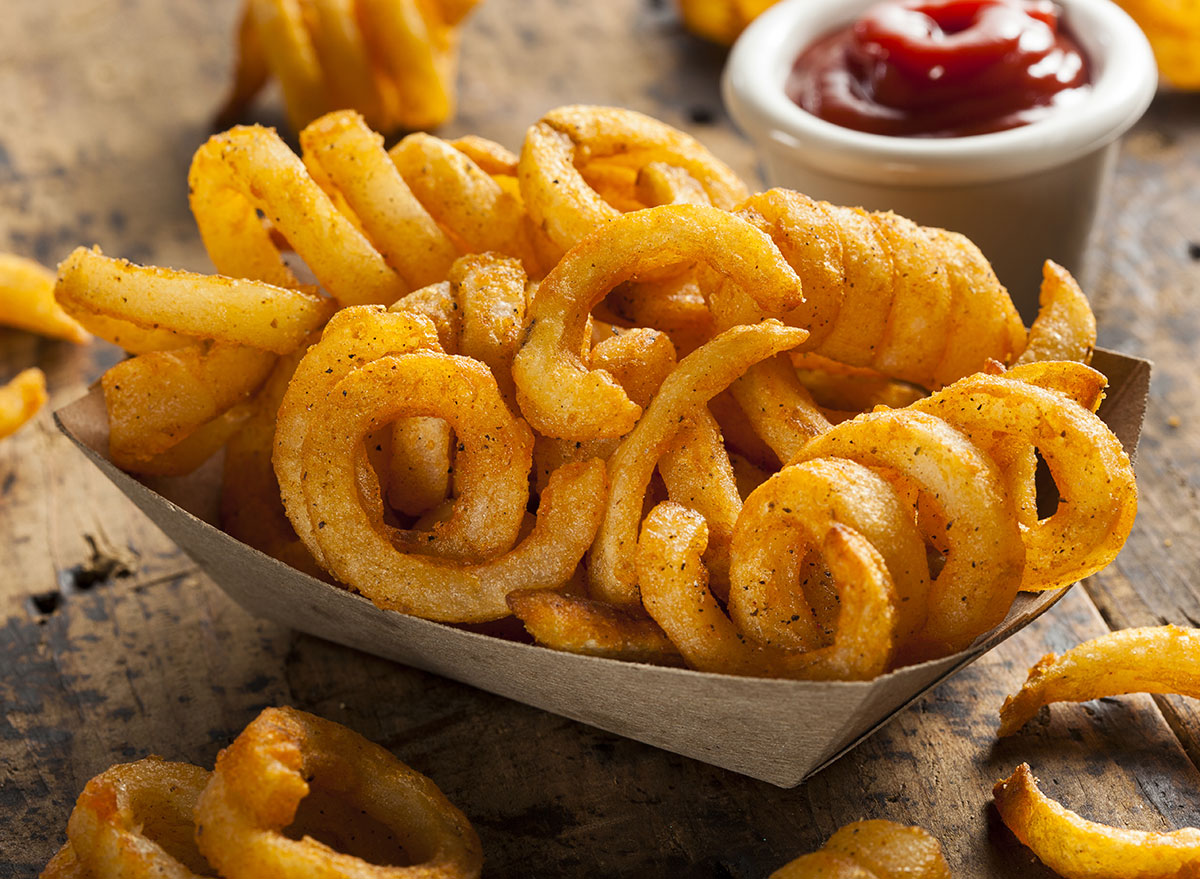
It's evidently a common enough question that McDonald's notes on its "Snacks & Sides FAQ" page that no U.S. McDonald's locations serve curly fries. And it doesn't seem like something that's going to happen anytime soon, either.
There's a chance they might taste different across the pond.
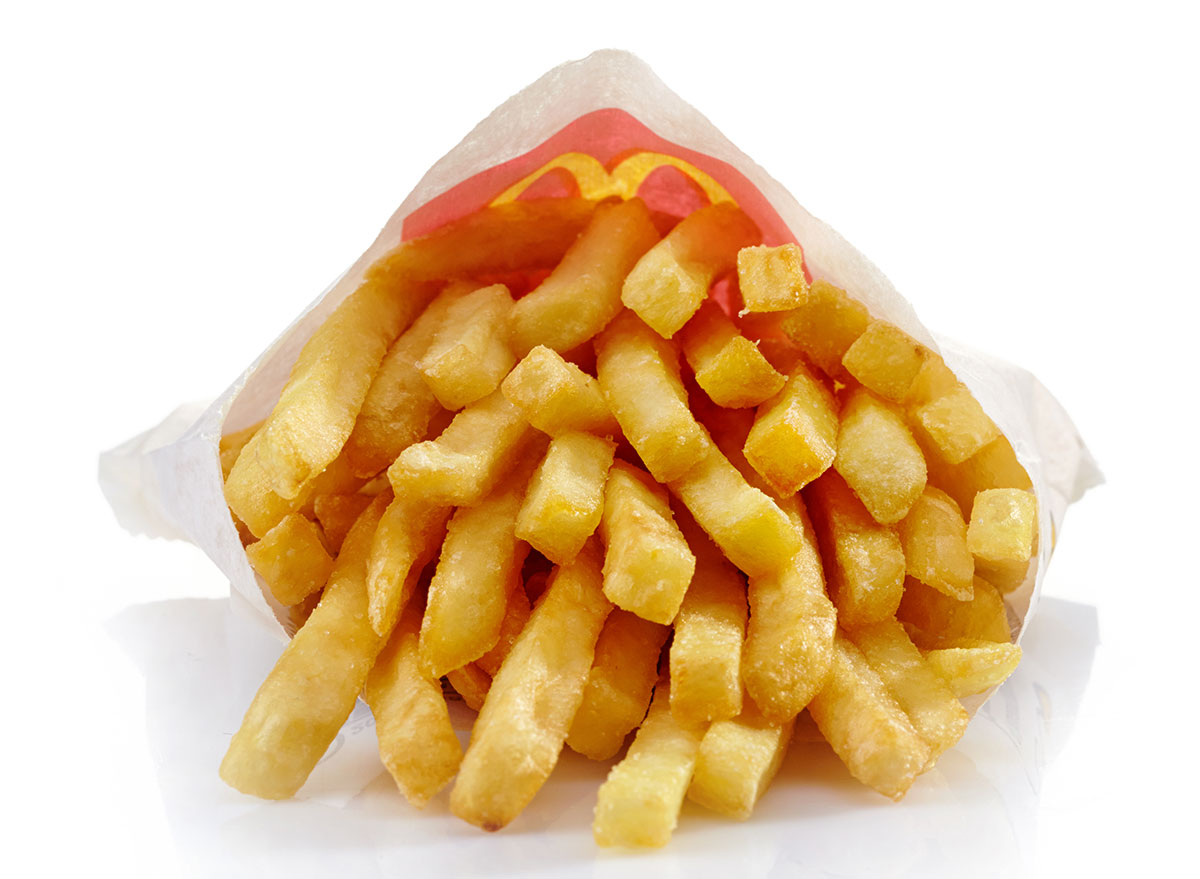
While McDonald's fries aren't vegan-friendly in the United States—thanks to the milk that goes into the "natural beef flavor"—if you happen to stop by one of these establishments in the UK, vegans are in luck. They aren't made with that natural beef flavor in the UK, and fewer chemicals are listed on the fries' UK overall ingredients, too.
In 2014, McDonald's refused to use a new GMO potato variety.
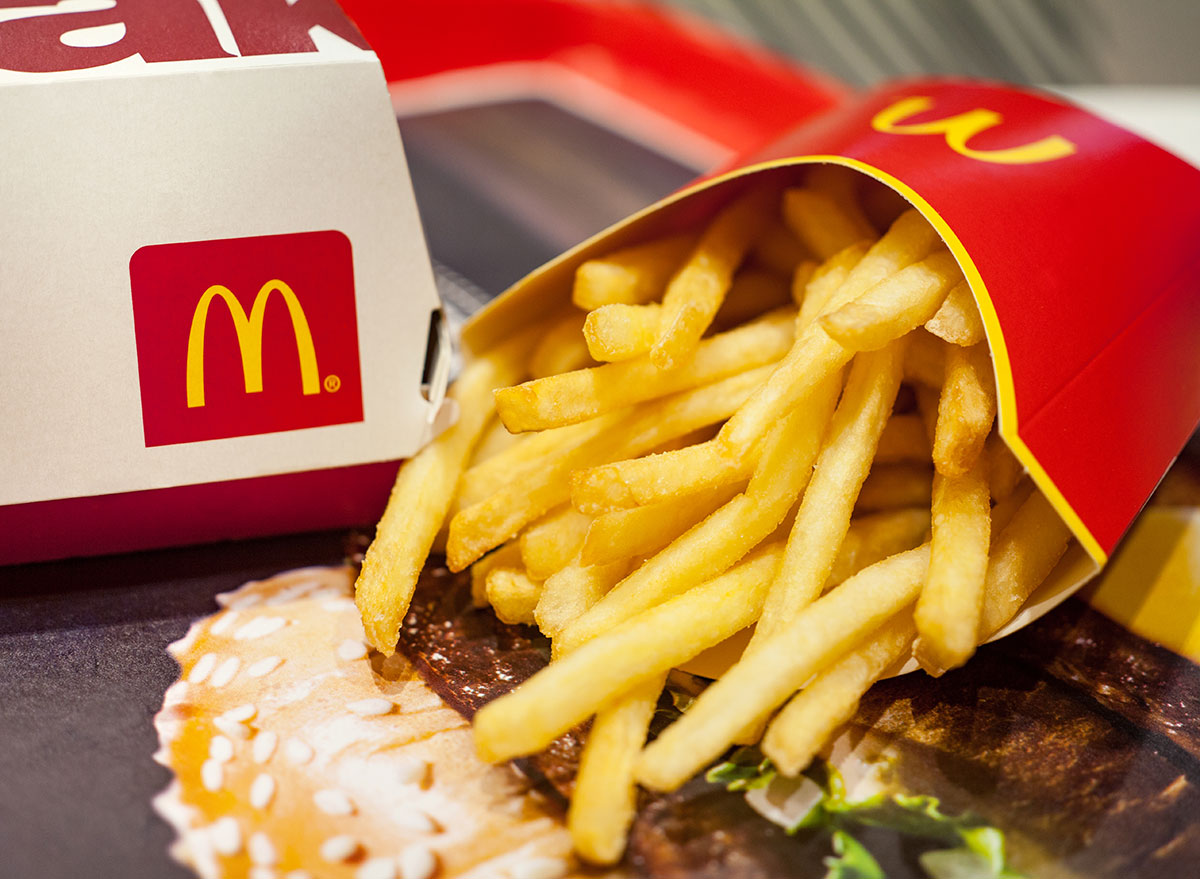
Capital Press reported in November 2014 that J.R. Simplot had created the "Innate" potato, which would bruise less easily and would "produce less of a potentially cancer-causing compound when fried." The USDA approved the Innate potato, but McDonald's announced that it "does not source GMO potatoes" and wouldn't be using the new creation. That announcement came despite the fact that roughly 90 percent of scientists believe GMOs are safe, according to The New York Times.
McDonald's buys 3.4 billion pounds of potatoes each year.

That's a global figure, according to an Inc. story published in January 2018. Still, it's a lot of potatoes—it's no wonder they're the most popular vegetable in the United States.

